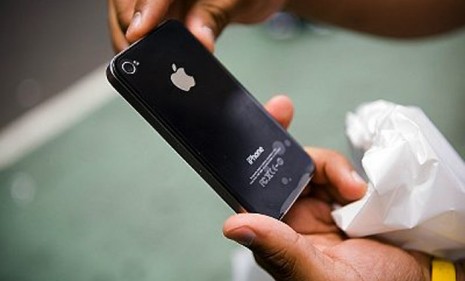'Jailbreaking' iPhones: Legal, but useful?
iPhone users can now "jailbreak" their handsets without fear of legal recourse. Will this affect the average Apple fan?

A free daily email with the biggest news stories of the day – and the best features from TheWeek.com
You are now subscribed
Your newsletter sign-up was successful
The Library of Congress and the U.S. Copyright Office ruled Monday that iPhone and other smartphone users can legally "jailbreak" their handsets, which is to say: Hack the operating system in order to use non-approved applications such as MxTube (which lets you store YouTube videos to watch when you're offline) or Cyntact (which lets you add photos to your iPhone contact list). Though the ruling was a win for the Electronic Frontier Foundation over longtime opponent Apple, what have iPhone users really gained? (See a "jailbroken" iPhone)
This ruling doesn't change much: You'd think Apple would learn a valuable lesson about the beauty and appeal of an open software system, says Barbara Krasnoff in Computerworld, but it probably won't. And aside from the handful of avid jailbreakers — who weren't deterred by the law-breaking, anyways — it "will probably not make a huge difference to most iPhone users," either.
"An iPhone jailbreak! Call the cops! No..."
The Week
Escape your echo chamber. Get the facts behind the news, plus analysis from multiple perspectives.

Sign up for The Week's Free Newsletters
From our morning news briefing to a weekly Good News Newsletter, get the best of The Week delivered directly to your inbox.
From our morning news briefing to a weekly Good News Newsletter, get the best of The Week delivered directly to your inbox.
Apple can still punish jailbreakers: Bringing the jailbreaking community out of the underground should boost the quality of unauthorized apps, says Alexis Madrigal in The Atlantic. But note what the ruling doesn't do — namely, protect the producers of such apps legally, or keep Apple from "playing hardball" with users by, for instance, refusing to repair a jailbroken phone that has been "locked down" (or "bricked").
"Jailbreaking your iPhone now legal"
Apple should shrug and move on: I don't get why Apple even bothered fighting "the niche population of phone tinkerers," says Dan Frommer in the San Francisco Chronicle. The "vast majority of iPhone users" just "want their phone to work," and will avoid the risks of jailbreaking it. And even if people do want to tinker, why should Apple care? They make all their money from selling the phones; the apps are "a break-even business."
"Apple still has nothing to worry about..."
A free daily email with the biggest news stories of the day – and the best features from TheWeek.com
-
 Political cartoons for February 15
Political cartoons for February 15Cartoons Sunday's political cartoons include political ventriloquism, Europe in the middle, and more
-
 The broken water companies failing England and Wales
The broken water companies failing England and WalesExplainer With rising bills, deteriorating river health and a lack of investment, regulators face an uphill battle to stabilise the industry
-
 A thrilling foodie city in northern Japan
A thrilling foodie city in northern JapanThe Week Recommends The food scene here is ‘unspoilt’ and ‘fun’